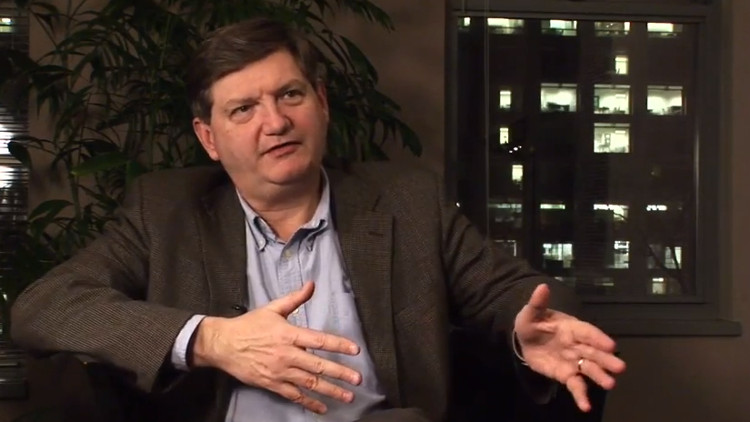Facing stiff pressure from press freedom groups concerned that an American journalist could be jailed for essentially doing his job, the Justice Department has declined to force James Risen, a veteran New York Times reporter, to reveal the identity of a source who allegedly leaked him classified information.
In court documents filed Tuesday in U.S. District Court in Alexandria, Va., outgoing Attorney General Eric Holder acknowledged that Risen would never reveal the source’s identity. The Justice Department’s case stems from a section of Risen’s book State of War, in which he describes a failed CIA attempt at sabotaging Iran’s nuclear program.
“Under no circumstances would he provide such testimony,” Holder said.
Risen, a Pulitzer Prize winner, has repeatedly said he would go to jail instead of revealing the name of his source, even if compelled by a federal court to do so.
Yet his legal battle with the government will continue, even despite Holder’s apparent concession. Included in the court filing was authorization from Holder to federal prosecutors to subpoena Risen in the trial of former CIA officer Jeffrey Sterling, who court documents from Risen’s federal appeals hearing identify as a former CIA officer once assigned to a “highly classified program intended to impede Iran’s efforts to acquire or develop nuclear weapons.”
Sterling was reassigned in May 2000, and three months later filed a complaint alleging that he was discriminated against by the agency. A year later he also filed a federal lawsuit alleging racial discrimination, which was dismissed in 2004.
The day after Sterling filed the latter, the government alleges he met with two staff members of the Senate Select Committee on Intelligence and expressed concerns about the CIA’s handling of the Iran program, as well as his discrimination complaint. The government alleges Sterling “threatened to go to the press,” according to court documents, and spoke with Risen over the phone and through email less than a month before the reporter contacted the CIA and the National Security Council about the classified program.
Prosecutors will be allowed to seek testimony from Risen about the fact he has a confidentiality agreement with his source for Chapter 9 of his book, the section pertaining to an alleged US government plot to sabotage Iran’s nuclear program, and “that he will not breach the agreement,” according to court documents.
Risen can also be asked to confirm that he authored the chapter in question, as well as two articles published in the Times in 2001 and 2002, the latter relating to Sterling’s discrimination accusations against the CIA, and that all three “accurately reflect information provided to him by the source.” Prosecutors may also seek acknowledgment from Risen stating he had a prior non-confidential relationship with Sterling.
It’s unclear if Holder’s decision not to force Risen to identify his source will improve an already tenuous relationship with press freedom groups, which have been critical of Holder’s pursuit of Risen’s testimony and its unprecedented prosecution of whistleblowers.
Facing pressure from the US government, the Times agreed not to publish information about the classified program, so Risen included it in his book instead.
Risen had exhausted all his legal avenues after the U.S. Supreme Court recently declined to hear his appeal.
Risen has had the backing of some of the most influential press freedom groups in the country. In August, the Committee to Protect Journalists delivered to the DOJ a petition containing 100,000 signatures in support of Risen.
The reporter has not been silent on the matter. He has repeatedly called President Obama “the greatest enemy to press freedom in a generation.”
Risen was also the subject of a 60 Minutes segment in October, called “War on Leaks.” When asked if he would divulge his source, Risen responded: “Never, no. Basically, the choice the government’s given me is: Give up everything I believe or go to jail. So I’m not going to talk.”































